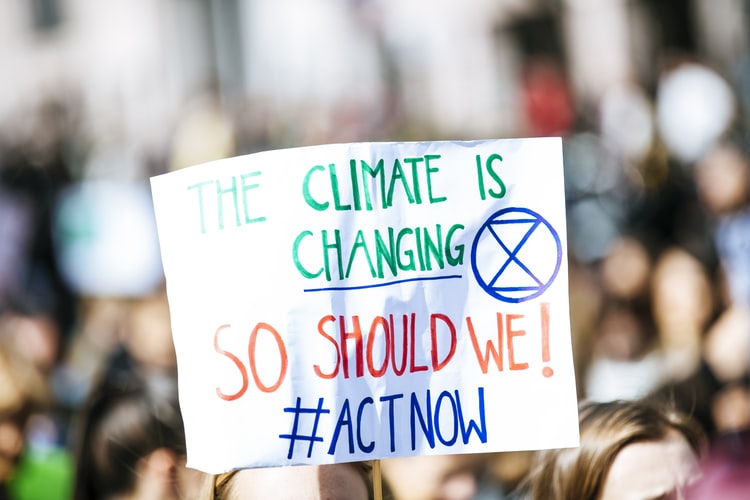
Alice Wibberley explores whether we should follow Greta Thunberg’s footsteps
Greta Thunberg’s two-week trip across the Atlantic Ocean on a zero-carbon yacht was a clear protest against the aviation industry. With aviation making up two per cent of global carbon emissions, polluting the air and funding the fossil fuels industry, it’s clear why the youth climate activist chose not to fly – but shouldn’t we be doing the same?
With many of us beginning to cut down our meat and dairy consumption, avoiding plastic and switching to public transport in a bid to save the planet, statistics show that there has been no reduction in support for the aviation industry. Over 100,000 flights take off every day around the world and 8.3 million people fly daily. A flight is the single biggest impact that an individual can make on the environment. A recent article in The Guardian revealed that a return flight from London to New York, emitting 986kg per passenger, released more carbon emissions than the average citizen in 56 different countries would in a year. If aviation is so awful for the planet, why aren’t more of us avoiding it?
The truth is that there is no attractive, practical alternative for those of us who wish to travel. The majority of the UK’s working population are allotted only 33.5 days of holiday per year, so with time so precious, it’s clear why flying is the most popular choice. Most students are also constrained by budget and in a lot of cases, flying provides the cheapest option for a summer getaway or far-away destinations.
“Over 100,000 flights take off every day across the world, and 8.3 million people fly daily
Seemingly attractive alternatives, such as picturesque train journeys through Europe or cruises, have their faults. Train travel is slower and often more expensive. For example, a flight to Rome in October costs £265, whilst going by train for the same weekend trip would cost £328. The fastest flight time could get you there in 2 hours and 45 minutes, whilst the quickest train takes over 18 hours.
Cruises are also awful for the environment as waste is often ditched in the ocean, and huge liners require massive engines that run on diesel. Cruise ships generate 15 gallons of hazardous chemical waste per day, along with 210,000 gallons of sewage in a week. Every passenger’s carbon footprint is triple what it would be on land.
There have been some ideas thrown around to discourage people from flying, such as a frequent flyer tax, or a points-based quota to reduce air miles. This follows from a 2014 study which showed that 70% of flights were taken by just 14% of the UK’s population. The availability of budget flights, combined with their speed, reliability, relative comfort, and ease means that until measures such as these are put in place, flying will only increase.
The impacts of making flying more inaccessible will not only be on the environment. Globalisation, a term coined to explain the growing interconnectedness of the world due to breakthroughs in transport and communications in the late 20th century, could be reversed, with the planet seemingly becoming a bigger place for those who cannot afford (or are prevented from) flying. If prices rise, which is likely due to increasing scarcity of fossil fuels, flying and global travel may become a privilege for the rich to enjoy. ‘Staycations,’ which have increased in popularity by a third since last year, will be the primary form of holidaymaking for the masses.
“The example set by Greta Thunberg remains ideal but, for most, unachievable
In the meantime, pressure should be put on aviation companies to improve their efficiency. Ensuring flights are fully booked, using engines that are less thirsty for fuel, shedding weight where possible, and investing in biofuel research will all help to reduce carbon emissions. People will still continue to fly whilst there are no attractive alternatives or government policies preventing them from doing so. The example set by Greta Thunberg remains ideal but, for most, unachievable.
Comments